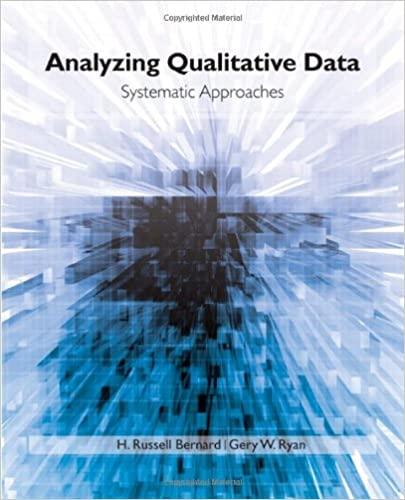Question
Respond to at least one of your colleague's postings in one or more of the following ways: Ask a probing question. Share an insight gained
Respondtoat least oneof your colleague's postings in one or more of the following ways:
- Ask a probing question.
- Share an insight gained from having read your colleague's posting.
- Offer and support an opinion.
- Make a suggestion.
- Expand on your colleague's posting.
Colleague Post:
Post a brief description of the traumatic event you selected.
The traumatic event chosen for this week's discussion is the evacuation due to wildfire. Alberta has seen 632 wildfires solely this year, resulting in many families being evacuated from their homes; as of Monday last week, six additional evacuation orders were placed for Alberta (CTV News, 2023). During evacuations, families are forced to leave behind their cherished homes, livestock, belongings that did not fit in their mode of transportation, friends, family, and financial implications.The uprooting of their lives can be detrimental to the mental health of children and adolescents, resulting in symptoms of posttraumatic stress disorder (PTSD).
Then, describe two symptoms of posttraumatic stress disorder (PTSD) commonly seen with this type of trauma and explain why. Be specific.
Studies have demonstrated that youth who have little social support during the evacuation process experience 40% more stressors than their counterparts, contributing to increased development of PTSD symptoms, depression or anxiety (La Greca., et al., 2022). The highest reported symptoms of PTSD from this type of traumatic event include repeated disturbing memories and avoidance of memories, thoughts, or feelings related to the events (Belleville., et al., 2019).In accordance with the American Psychiatric Association, avoidance of stimuli of the specific event, exposure to traumatic events and distressing memories all meet the criteria for PTSD (2022).Children and youth, especially, are most susceptible to these symptoms as they have not been given the opportunity to develop their full resiliency, utilize beneficial coping strategies, or, depending on developmental age, have the capacity to fully comprehend the displacement. As such, the development of these symptoms occur as a result.
Finally, explain one way you might be affected when working with children or adolescents who have experienced this traumatic event and why.
As with any helping professional supporting folks who have survived a traumatic event, they are susceptible to vicarious trauma.Vicarious trauma can occur after a clinician has in-depth conversation with and listens to the stories of the trauma survivor and integrates that trauma into their own lives; making it difficult to separate the client's experiences from your own (Caffrey, 2023).Personal life issues, burnout and confidentiality all work collaboratively to increase a mental health provider's risk of vicarious trauma; being aware of symptoms, mitigating the risks, and openly sharing concerns with colleagues and supervisors is essential to navigating vicarious trauma (Caffrey, 2023).
References
American Psychiatric Association. (2022). Diagnostic and statistical manual of mental disorders (DSM-5-TR) (5th ed., text rev.). https://doi.org/10.1176/appi.books.9780890425787
Belleville, G., Ouellet, M. C., & Morin, C. M. (2019). Post-Traumatic Stress among Evacuees from the 2016 Fort McMurray Wildfires: Exploration of Psychological and Sleep Symptoms Three Months after the Evacuation. International journal of environmental research and public health, 16(9), 1604. https://doi.org/10.3390/ijerph16091604Links to an external site.
Caffrey, C. (2023). Vicarious traumatization (VT). Salem Press Encyclopedia of Health.
CTV News. (2023). Alberta could break decades-old record for amount of area burned during 2023 wildfire season. Retrieved from https://edmonton.ctvnews.ca/alberta-could-break-decades-old-record-for-amount-of-area-burned-during-2023-wildfire-season-1.6438194Links to an external site.
La Greca, A. M., Tarlow, N., Brodar, K. E., Danzi, B. A., & Comer, J. S. (2022). The stress before the storm: Psychological correlates of hurricane-related evacuation stressors on mothers and children. Psychological Trauma: Theory, Research, Practice, and Policy, 14(S1), S13-S22. https://doi.org/10.1037/tra0001052
Step by Step Solution
There are 3 Steps involved in it
Step: 1

Get Instant Access to Expert-Tailored Solutions
See step-by-step solutions with expert insights and AI powered tools for academic success
Step: 2

Step: 3

Ace Your Homework with AI
Get the answers you need in no time with our AI-driven, step-by-step assistance
Get Started


